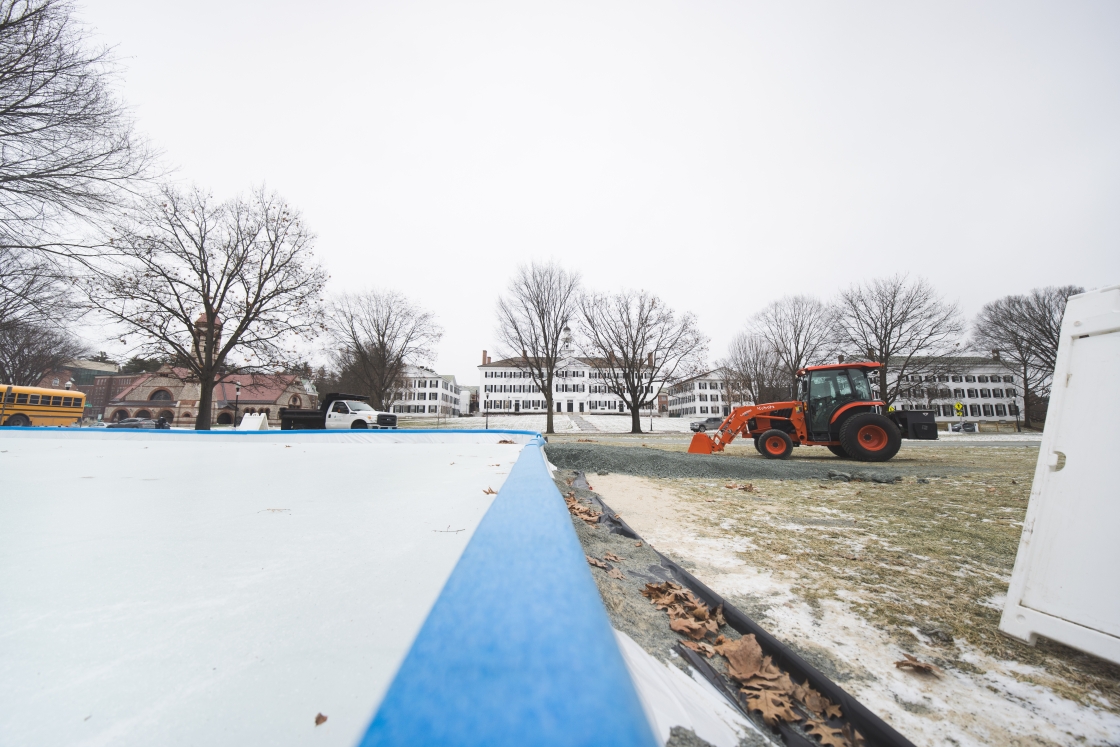Leading theoretical physicist Stephon Alexander will join the Dartmouth faculty this summer as the Ernest Everett Just 1907 Professor. Alexander, a native of Trinidad who was raised in the Bronx, specializes in particle physics and cosmology and is also an accomplished jazz saxophonist.

Alexander’s work grapples with the most fundamental aspects of what constitutes reality, seeking answers in the absolute extremes of physics. At one end of the spectrum are subatomic particles, unimaginably small entities traveling near the speed of light. At the other extreme are investigations of how matter and energy operate on the grandest of scales, encompassing the enigmatic dark matter and dark energy that constitute so much of the universe.
“We are tremendously excited to welcome Stephon Alexander to the Dartmouth faculty,” says David Kotz ’86, the Champion International Professor, a computer scientist and associate dean of faculty for the sciences. “He brings passion to his research, to teaching, and in particular to student mentoring, and I expect will be a great resource for students across the sciences.”
“Dartmouth’s focus on both teaching and research, coupled with the Just program, presented a unique situation that very few, if any, other institutions could offer.” Professor Stephon Alexander
The Ernest Everett Just 1907 faculty chair honors E. E. Just, a pioneering cellular biologist and one of Dartmouth’s earliest African American graduates. He was a founder and proponent of cellular holism, a concept that is only now appreciated for its significance. His approach brought together the sciences of embryology and genetics, foreshadowing today’s epigenetics—the cutting-edge discipline focused on heritable changes that occur outside of DNA and control gene expression.
“Dealing with the barriers of prejudice and discrimination, Just demonstrated vision and courage as he strived to advance his science,” remarks Alexander. “It is meaningful for Dartmouth to have created such a chair, and I am both grateful and excited to be part of Just’s legacy.”
Dartmouth also recognizes Just’s achievements through the E.E. Just Program, which aims to increase the number of minority students majoring in the sciences. The program offers opportunities for undergraduate involvement in research and issues related to minority participation in the sciences.
“I regard the Just program as a big mission of mine and it figured prominently in my decision to come here,” says Alexander, who has previously held faculty appointments at Penn State and Haverford College. “I relish the prospect of training and enabling the next generation of minority students to partake in the scientific enterprise. Dartmouth’s focus on both teaching and research, coupled with the Just program, presented a unique situation that very few, if any, other institutions could offer.”
Alexander also plans to continue pursuing his passion for music at Dartmouth. He is already on the lookout for faculty musicians with whom to collaborate and may also be taking on students to teach his personal jazz artistry. Alexander considers his improvisational approach to jazz to be a logical extension of his science.
“There is a conceptual connection between physics and music,” Alexander observes. “In composition or improvisation I see geometric parallels to physical laws like gravity, with the musician gravitating to or away from certain tonal tensions. I see geometry as a principle that governs physical law and also harmonic and rhythmic ideas in music, especially in jazz.”
Alexander attended Haverford College as an undergraduate and received his master’s and doctoral degrees from Brown University. He conducted postdoctoral research at Imperial College, London and the Stanford University Linear Accelerator Center. He will begin at Dartmouth this summer as a tenured associate professor in the Department of Physics and Astronomy.
